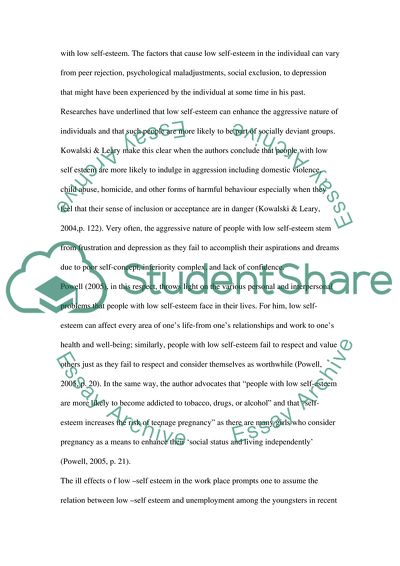Cite this document
(“The Ill-Effects of Low Self-Esteem Research Paper”, n.d.)
The Ill-Effects of Low Self-Esteem Research Paper. Retrieved from https://studentshare.org/psychology/1737638-the-effects-of-low-self-esteem
The Ill-Effects of Low Self-Esteem Research Paper. Retrieved from https://studentshare.org/psychology/1737638-the-effects-of-low-self-esteem
(The Ill-Effects of Low Self-Esteem Research Paper)
The Ill-Effects of Low Self-Esteem Research Paper. https://studentshare.org/psychology/1737638-the-effects-of-low-self-esteem.
The Ill-Effects of Low Self-Esteem Research Paper. https://studentshare.org/psychology/1737638-the-effects-of-low-self-esteem.
“The Ill-Effects of Low Self-Esteem Research Paper”, n.d. https://studentshare.org/psychology/1737638-the-effects-of-low-self-esteem.


